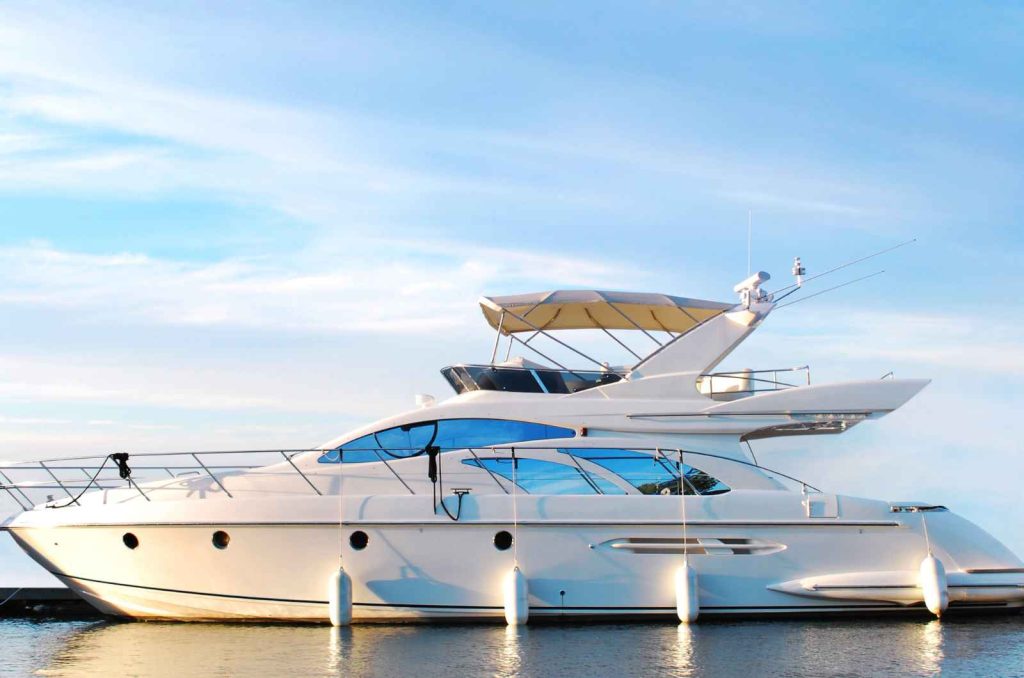
Yachting is an enjoyable and luxurious experience, but it comes with its own set of unique challenges. One of the biggest challenges of sailing on a yacht is providing clean drinking water. Without a reliable source of purified water, sailors can run into serious health issues. Fortunately, modern yacht water purification systems make it easy to produce clean, safe drinking water when you’re out on the open water.
Yacht water purification systems use a variety of methods to remove contaminants from the water, including reverse osmosis, chemical treatments, and ultraviolet light. Reverse osmosis systems use a membrane to filter out large particles and contaminants, while chemical treatments use specific compounds to kill bacteria and other microorganisms. Ultraviolet light systems use UV light to destroy bacteria and viruses, making them one of the most effective and safest methods of purifying water.
These systems can easily be installed on most yachts, and they’re incredibly efficient. Depending on the system, they can produce up to 20 gallons of clean water per hour. This means you can easily get enough clean water for a large group of people, even when you’re far out at sea.
Yacht water purification systems are also incredibly reliable. Most systems have built-in alarms that will alert you if there’s a problem with the purification process. They’re also designed to filter out any chemicals or toxins that might be present in the water, ensuring that the water you’re drinking is safe and free of contaminants.
If you’re looking for a reliable and effective way to ensure that you have clean drinking water while you’re out on the open water, a yacht water purification system is an excellent choice. With a reliable system, you can rest assured that you’ll always have a steady supply of clean, safe drinking water, no matter how far out to sea you go.
Why water is purified
Water purification is an important process that ensures safe drinking water for people and animals in many areas. Water purification removes contaminants from water, making it safe for consumption and other uses. Water is contaminated with a variety of pollutants, including bacteria, viruses, industrial and agricultural chemicals, and heavy metals. These contaminants can make water unsafe for drinking, cooking, and bathing.
Water purification techniques vary from country to country and can involve a variety of processes. Common techniques include filtration, reverse osmosis, distillation, and ultraviolet radiation. By using these techniques, water can be made safe for drinking, cooking, and other uses.
Water purification is important for many reasons. It ensures safe drinking water and prevents water-borne diseases such as cholera, typhoid, and dysentery. It also reduces the risk of exposure to chemical contaminants, which can cause serious health issues. Additionally, purified water can be used for industrial processes, such as cooling systems, steam production, and cleaning.
Water purification is essential to maintaining a healthy environment and safe drinking water. By using effective water purification techniques, we can ensure that our water is free of contaminants and safe for consumption.
?What is the best method for purifying water from the sea
The best method for purifying water from the sea depends on the quality of the water and the intended use. Generally, the most effective methods for purifying seawater involve multiple stages of filtration, chemical treatments, and ultraviolet light.
The first step in purifying seawater is to filter out large particles and contaminants. This can be done using a strainer, sand filter, or reverse osmosis filter. Next, chemical treatments such as chlorine or iodine can be used to kill bacteria and other microorganisms. Finally, ultraviolet light can be used to destroy viruses and other organic contaminants.
For drinking water, reverse osmosis is generally the best method for purifying seawater. This process removes dissolved salts and other contaminants, making the water safe to drink. Reverse osmosis systems are highly efficient and can produce up to 20 gallons of clean water per hour.
For industrial uses, distillation is often the best method for purifying seawater. This process involves boiling the water and then collecting the vapor as it cools. This vapor is then condensed back into liquid form and is free of contaminants. Distillation systems can produce large amounts of water quickly and are often used for cooling systems and steam production.
No matter what the intended use, it is important to use a method that will effectively purify seawater and make it safe for consumption or industrial use.
?What are 3 techniques for purifying water for a yacht
Yachting is an enjoyable and luxurious experience, but it comes with its own set of unique challenges. One of the biggest challenges of sailing on a yacht is providing clean drinking water. Fortunately, modern yacht water purification systems make it easy to produce clean, safe drinking water when you’re out on the open water.
There are three main techniques used to purify water for a yacht: reverse osmosis, chemical treatments, and ultraviolet light. Reverse osmosis systems use a membrane to filter out large particles and contaminants, while chemical treatments use specific compounds to kill bacteria and other microorganisms. Ultraviolet light systems use UV light to destroy bacteria and viruses, making them one of the most effective and safest methods of purifying water.
Reverse osmosis systems are the most efficient and can produce up to 20 gallons of clean water per hour. Chemical treatments are less efficient but are effective at killing bacteria and other microorganisms. Ultraviolet light systems are also effective but require regular maintenance to ensure they’re producing safe water.
No matter which technique you choose, a yacht water purification system will ensure that you have a steady supply of clean, safe drinking water while you’re out on the open water.
for more information: "puro-systems" yacht water purification